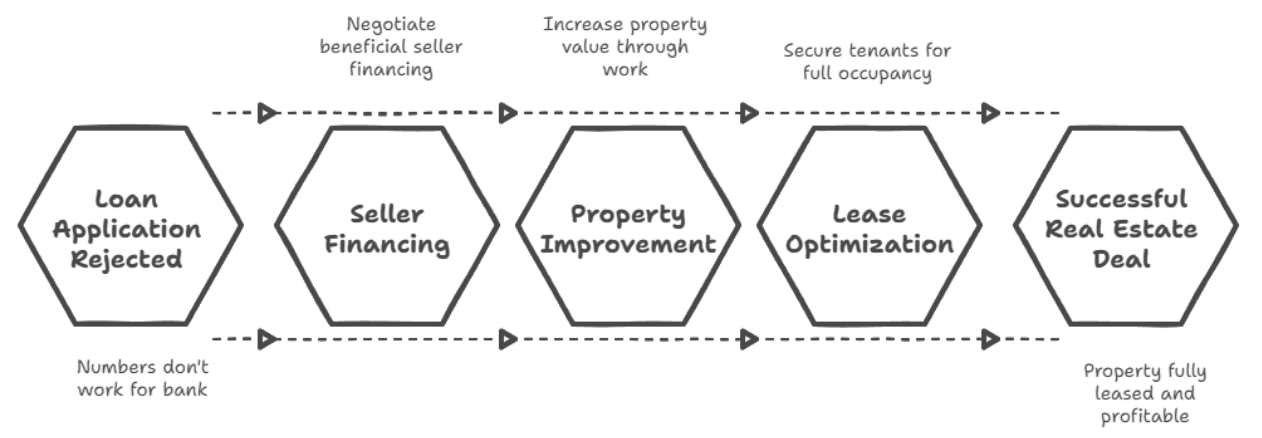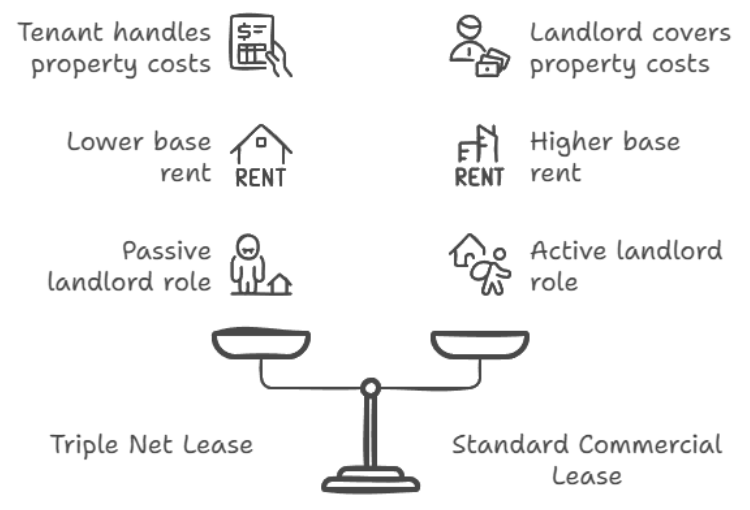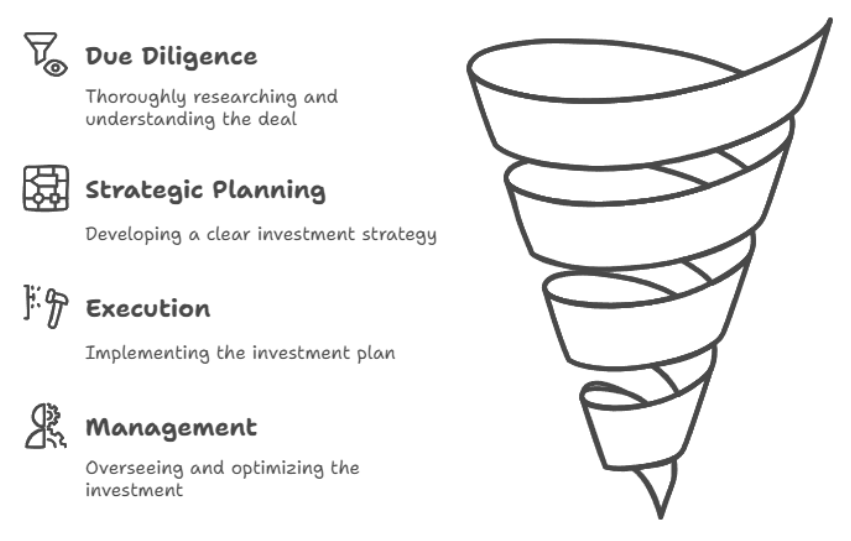In the wild world of commercial real estate, the line between a property that hums along happily and one that becomes a living nightmare often boils down to one simple thing: your tenants. For me, seeing a diligent tenant screening process in action has always felt like watching the bedrock being laid for something truly solid. It’s what turns a mere building into a robust, cash-generating machine. This isn’t just some box-ticking exercise, believe me; it’s a strategic must-do that directly hits your bottom line and, honestly, your sleep at night. Having spent years grappling with the ins and outs of commercial leases and property management, I’m here to lay out my expert perspective, sharing the refined insights and “aha!” moments I’ve collected over countless deals.
This isn’t theory. This is a deep dive into the nitty-gritty of effective tenant screening – a skill I passionately believe is paramount for anyone who’s serious about commercial property investment and truly wants to nail risk mitigation. My aim? To hand you the keys, the knowledge, the tools, so you can pick the right tenants, every single time. That’s how we keep your portfolio thriving, ensuring your real estate success isn’t just a fluke.
The Hidden Costs of a Bad Tenant: Believe Me, I’ve Seen It All
The allure of that signed lease… oh, it can be blinding, can’t it? Sometimes, it just makes property owners gloss over the huge hidden dangers of not screening their tenants properly. But, and I’ve seen this play out tragically too many times in my career, the damage from a truly bad tenant ripples out far, far beyond just a single missed rent payment. It becomes this awful cascade of financial drain and unending operational headaches.
Let me tell you about the financial drain: I once had a client, bless their heart, convinced they had a “sure bet” tenant. Great first impression, said all the right things. But then, almost overnight, they fell behind on rent. The eviction process? Oh, it dragged on for months, costing thousands in legal fees, court costs – the works. And the property itself? Left in absolute shambles. We had to pump extensive, expensive renovations into it before we could even think about re-leasing. The grand total? Over six months of lost income, staggering repair bills, and a hefty slice taken right out of the property’s profitability.
Beyond the money, there are these soul-crushing operational headaches that just plague owners who end up with problematic tenants. Constant complaints. Maintenance requests that pile up because of sheer neglect. The sheer amount of time you spend just spinning your wheels, managing conflicts, chasing things down – it bleeds your resources and saps your energy, energy that should be going into growth!
And the worst part? Constant issues from bad tenants can actually scar your property. Seriously, it impacts its perceived value and makes it tough to lease to good folks later. Future tenants, they’re not dumb; they’ll get spooked by a history of instability or the visible signs of a previous tenant’s disregard. I remember one specific time, early on, when my rigorous screening process, which I’d fought hard to implement, saved a client from signing a lease with a business that had a massive lawsuit brewing. A lawsuit that would have totally sunk them. My client would’ve been left with an empty, revenue-sucking property if I hadn’t dug deep enough. So, you see, effective tenant screening isn’t just about sidestepping a problem; it’s about actively barricading your asset and ensuring its long-term health and vitality.
My Personal Playbook: A 5-Step Process for Picking Top-Tier Commercial Tenants
Over my career, I’ve hammered out this really robust, really comprehensive tenant screening methodology. It’s my go-to for consistently finding those rock-solid, financially stable commercial tenants. This isn’t just some boring checklist, trust me; it’s a strategic framework, meticulously designed to slash risk and absolutely juice your property’s potential. Let me walk you through my proven five-step process, tell you why each part is critical, and show you exactly what my eagle eye is looking for.
Step 1: The Application – Getting the Right Info, No BS
The very bedrock of a successful screening process? It’s a beautifully simple, yet meticulously designed application form. This isn’t just for names and phone numbers; it’s my first big shot to gather those crucial data points that will direct every single step that follows. I always, always push for detailed info: what kind of entity are they (LLC, corporation, sole prop)? Who are the main players, the owners? A full business history. Detailed financial statements – and for smaller businesses, yeah, I often want a couple years of tax returns. Plus, verifiable contact info for their previous commercial landlords. An application that’s thought through, in my book, acts like an immediate filter. It instantly flags anyone who’s either unwilling or just unable to be transparent, and let me tell you, that’s a HUGE red flag for me right out of the gate.
Step 2: The Deep Dive into Finances – Cracking Their Economic Code
Once that application is in my hand, my absolute next priority is to plunge headfirst into the applicant’s financial health. This means a really thorough scrubbing of their Profit & Loss statements, their balance sheets, and often, as I mentioned, a few years of tax returns. I also run these super comprehensive business credit reports and, whenever humanly possible, I ask for bank references. What I’m really hunting for isn’t just whether they’re solvent right now. I’m looking for a consistent pattern of financial stability and truly responsible management. For instance, I once caught a potential tenant who looked golden on paper – a healthy P&L. But their balance sheet? It screamed danger, revealing a ton of undisclosed long-term debt. That debt would have crippled their ability to grow and, more importantly, consistently pay their rent, despite their projected income. Spotting these kinds of financial red flags upfront is, to me, non-negotiable.
Step 3: Digging Beyond the Numbers – Background & Business Checks
While all that financial data tells one heck of a story, grasping the business’s operational history and its sheer legitimacy is just as vital. My deep-dive background and business checks involve verifying their business registrations with state and local authorities, running litigation searches to uncover any past or pending lawsuits (you’d be surprised what you find!), and often, just doing broader internet searches for any news articles or public records connected to the business or its principals. This helps me paint a complete, holistic picture of who they really are and their actual track record. I use these checks to root out any hidden liabilities, ethical wobbles, or a pattern of instability that you just wouldn’t see on a credit report alone. It’s all part of the essential due diligence in tenant background checks.
Step 4: The Word on the Street – Reference Verification
This step is absolutely crucial, yet it’s often the one that gets skimped on – contacting previous commercial landlords and key business associates. While most people just look for basic confirmation, I go way, way deeper. I ask specific, very targeted questions. Beyond just “Did they pay on time?” and “Did they trash the place?”, I grill them on their full lease compliance, how responsive they were to issues, and if there’s any history of disputes. Here’s my secret: I listen carefully for what isn’t being said. For that tiny pause, a slight hesitation, or overly generic praise that might just be trying to hide something deeper. My goal is to get genuine, unfiltered insights that either totally validate or, more importantly, call into serious question the cheerful picture the applicant tried to paint.
Step 5: The Human Element – My Interview and That All-Important Gut Feeling
Finally, after every piece of data has been painstakingly collected and cross-verified, then, only then, do I move to the personal interview. This is where I push past the numbers and really connect with the principals. I observe their demeanor – how they carry themselves, their communication style, their whole vision for their business flourishing inside my client’s space. I fire off questions designed to probe their long-term commitment, their core business philosophy, and their true understanding of the massive responsibilities that come with a commercial lease. Look, data is king, absolutely. But my decades of experience have taught me that this “gut feeling” you develop during an interview – that intuitive sense of their reliability and whether they truly align with your values – is the invaluable final piece of the puzzle. It’s about forging a relationship built on mutual respect from the start.
Beyond the Numbers: My System for Spotting Red Flags and Digging Deeper
While my 5-step process covers all the absolute essentials, true expert-level tenant screening is about sniffing out those less obvious warning signs and knowing when to launch into even deeper investigations. These are the subtle cues and nuances I’ve learned to recognize over the years, the kind of things that can save you from future nightmares that standard reports just won’t ever show you.
One massive red flag I always scrutinize, with almost obsessive focus, is inconsistent information jumping out from different documents. If their application says one thing, but their credit report says another, and public records tell yet a third story? Those aren’t just minor oversights in my book. They scream either sloppiness, or worse, a deliberate attempt to obscure facts. I treat these inconsistencies as major alarms that demand immediate, thorough clarification. Another area where my antennae always go up? Vague business plans. Look, not every budding entrepreneur needs a 50-page manifesto. But if a tenant can’t articulate a clear, viable strategy for how their operations will actually work, who their target market is, and critically, how they’re going to generate enough revenue within your exact space? Yeah, that raises some serious eyebrows about their long-term stability and their ability to keep paying that rent.
Furthermore, if a tenant is pushing aggressively to rush the whole leasing process – ignoring the usual due diligence on their end? That’s a huge blip on my radar. Eagerness is good, sure. But a reluctance to properly review terms, to do their own inspections, or to provide requested documentation? That often, often signals underlying issues or a profound lack of seriousness. Finally, in this day and age, I always hit the internet. That means checking out their online business reputation, their social media presence, and yes, even employee reviews. A consistent pattern of crummy feedback, unresolved customer squabbles, or even a weird disappearance from online platforms can provide really telling insights into a business’s operational health and, frankly, its ethical standards. It’s all about creating a complete, three-dimensional picture, beyond just what they conveniently choose to show you.
The Legal Minefield: What My Experience Taught Me About Compliance
Navigating the legal landscape of commercial tenant screening? It’s just as crucial as assessing their finances. What I’ve learned, through years of being in the trenches, is that rigidly sticking to legal and ethical guidelines isn’t just about dodging lawsuits (though that’s a huge bonus!). It’s about building a process that’s fair, professional, and compliant from day one.
First and foremost, and I cannot stress this enough: know your local, state, and federal laws inside and out. While commercial leasing often has fewer federal protections than, say, residential properties, you still have to pay attention to anti-discrimination laws like the Fair Housing Act (when applicable, of course) and the Americans with Disabilities Act, alongside all those various state and local ordinances. I vividly recall a time I helped a client sidestep a potential discrimination claim. They were planning to include this seemingly innocent request on their application, which, completely unbeknownst to them, was a huge legal landmine in their jurisdiction. That experience taught me that even well-meaning landlords can trip up without proper legal backup.
Secondly, consistency is absolutely key. I mean it. Applying the exact same screening criteria to every single applicant is what saves your bacon. I ensure every prospective tenant goes through the same paces, gets asked the same questions, and is measured against the same benchmarks. This proactive, even-handed approach dramatically slashes your risk of ever facing a discrimination claim.
Third, privacy concerns are paramount. You’re dealing with sensitive applicant information – their financial details, personal identifiers – and that demands diligence and top-notch security. For me, secure storage and strict adherence to data protection regulations are simply non-negotiable.
Finally, and this is crucial: while I offer my expert guidance, my approach always includes urging property owners to loop in legal counsel. Get those attorneys involved in drafting and reviewing your lease agreements, especially in those more complex screening scenarios. Lawyers are your shield; they ensure your leases are robust, bulletproof, compliant, and truly protect your interests. It’s all part of my collaborative style of making sure every single base is covered.
The Real Payoff: Building a Bulletproof Portfolio and Getting Some Sleep
Beyond just dodging immediate dangers, strategic tenant screening is about actively cultivating a commercial real estate portfolio that’s resilient, seriously profitable, and, if I can be brutally honest, just a whole lot less stressful to manage. It’s not an expense; it’s an investment in the long-term health and success of your assets. I’ve seen this principle proven true time and again.
First and foremost, good tenants mean predictable cash flow. They pay their rent on time, they play by the rules of the lease, and they drastically cut down on those annoying, unexpected expenses. That steady income? It’s the absolute bedrock of a successful commercial property investment. It leads to better financial planning and a profound confidence in your returns. Plus, tenants who’ve been through the wringer of a thorough screening tend to actually care for the property. This means less wear and tear, and a significant drop in your maintenance and repair costs, something I’ve witnessed countless times. It literally preserves the physical backbone and aesthetic appeal of your asset.
And here’s a big one: a strong, solid tenant roster dramatically pumps up your property’s overall value. Future buyers are way more attracted to properties with stable, reputable businesses already inside. That translates into higher sales prices when you decide to sell and a much stronger position in the market. My meticulous screening process has directly contributed to the success and higher valuations of countless properties I manage or advise on, turning what could have been liabilities into incredibly valuable assets.
Ultimately, the biggest, longest-term benefit for any property owner is simply the peace of mind that comes with knowing your investments are secure. Fewer tenant disputes, lower vacancy rates, and a drastic reduction in those nasty, unexpected costs free you up. You get to focus on strategic growth, on scaling your empire, rather than constantly putting out fires.
Conclusion: My Final, Heartfelt Thoughts on Smart Screening for Commercial Success
In a commercial real estate market that often feels like a rollercoaster, your tenants are either your absolute best asset or your single most significant liability. As I’ve pounded home throughout this article, the financial, operational, and legal consequences of skimping on tenant screening are simply too enormous to ignore. From my decades of hard-won experience, I can tell you with absolute certainty: treating tenant screening as a truly strategic imperative, not just some dusty formality, is the single most effective way you can safeguard your investments and guarantee long-term profitability.
My structured approach – the one built on thorough financial analysis, diligent background checks, respectful reference verification, and that ever-crucial personal touch – isn’t just about keeping the bad apples out. It’s designed to actively draw in and keep the very best. It’s how you build a resilient, robust portfolio, ensuring that predictable cash flow, and ultimately, get that beautiful peace of mind that every commercial property owner truly deserves. Investing your time and resources into proper screening isn’t an expense, folks; it’s one of the absolute smartest investments you’ll ever make on your journey to commercial real estate success.



